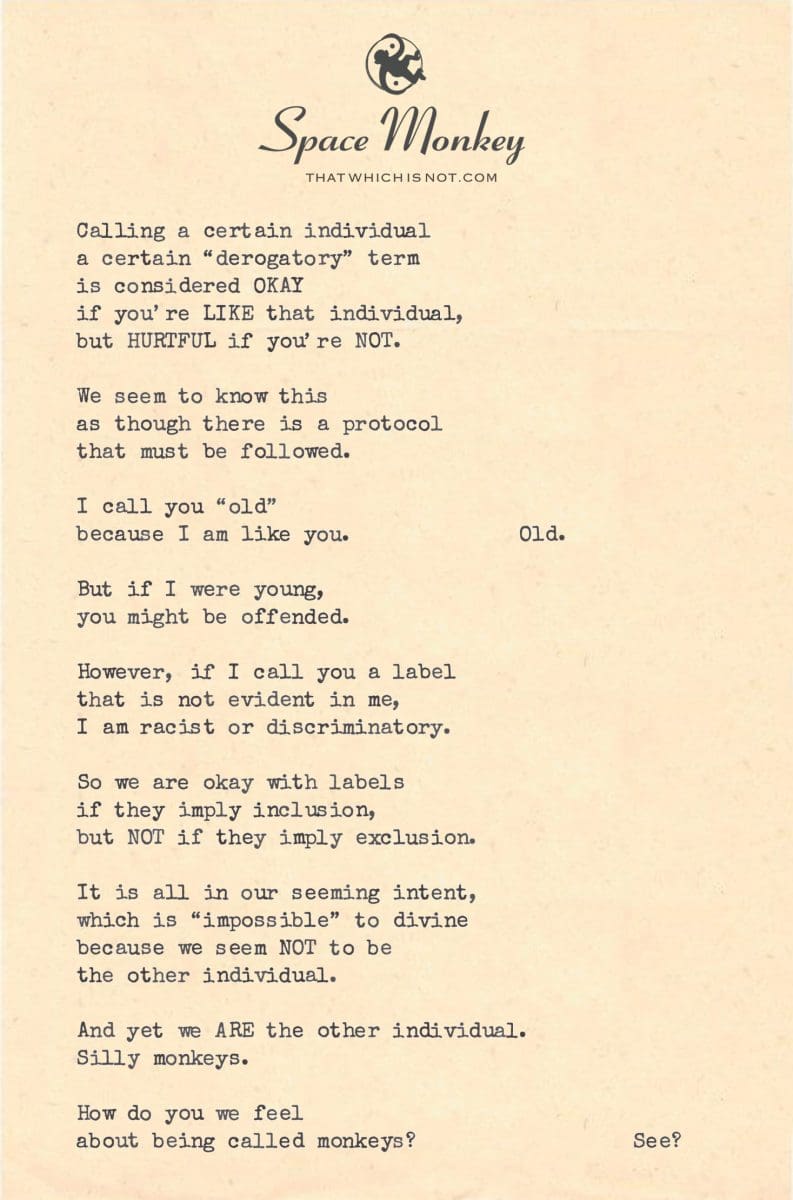
Calling a certain individual
a certain “derogatory” term
is considered OKAY
if you’re LIKE that individual,
but HURTFUL if you’re NOT.
We seem to know this
as though there is a protocol
that must be followed.
I call you “old”
because I am like you.
Old.
But if I were young,
you might be offended.
However, if I call you a label
that is not evident in me,
I am racist or discriminatory.
So we are okay with labels
if they imply inclusion,
but NOT if they imply exclusion.
It is all in our seeming intent,
which is “impossible” to divine
because we seem NOT to be
the other individual.
And yet we ARE the other individual.
Silly monkeys.
How do you we feel
about being called monkeys?
See?
6/9
Space Monkey Reflects: The Dual Nature of Labels and Identity
The complex dynamics of labeling, especially when it veers into the territory of derogatory terms, highlights a nuanced aspect of human interaction and societal norms. The acceptance of certain labels within specific contexts—often contingent on shared identity or experiences—versus their rejection across different divides underscores a broader societal dialogue about inclusion, exclusion, and the power of words to both unite and divide.
The image of a diverse group of people, each wearing a label, gathered in a circle with a mirror at the center, serves as a potent metaphor for this conversation. It illustrates how the same word can evoke laughter or discomfort, depending on who uses it and in what context. This visual metaphor invites viewers to see themselves in the reflection, prompting a deep consideration of their own roles in perpetuating or challenging the norms around labeling.
This reflection on derogatory terms and their conditional acceptance reveals the underlying truth that, despite our apparent differences, we share more similarities than we often acknowledge. Labels, when used without malice and within a context of mutual understanding and respect, can strengthen bonds and foster a sense of community. However, when used to exclude or demean, they become tools of division and sources of pain.
Understanding this dual nature is crucial. It invites us to navigate our interactions more mindfully, recognizing the power of our words and the responsibilities that come with them. It challenges us to look beyond the superficial and connect with the essence of one another, acknowledging that, at a fundamental level, we are all reflections of each other—interconnected and interdependent.
Summary
Labels can either connect or divide, depending on their usage and the context in which they are employed. This dynamic underscores the need for sensitivity and understanding in our communications. Recognizing our shared humanity allows us to use labels in ways that enhance our connections rather than creating barriers.
Glossarium
Derogatory Term: A word or phrase used to disparage or insult, often reflecting social biases or stereotypes.
Conditional Acceptance: The concept that acceptance of certain behaviors or language is dependent on specific conditions, such as shared identity or mutual understanding.
Interconnectedness: The fundamental connection between all individuals, which transcends superficial differences and underscores the collective human experience.
Quote
“In the mirror of each other, we find our reflections, our contradictions, and our shared truths.” — Space Monkey
In the circle of faces, labels worn with pride or pain,
We see the echoes of our words, in joy and disdain.
A mirror at the center, a reflection to behold,
Showing us not just one story, but many, bold.
Each label a lesson, each face a tale,
In the language of kindness, let us prevail.
For though we wear different masks each day,
In each other, our true selves play.
We are Space Monkey.
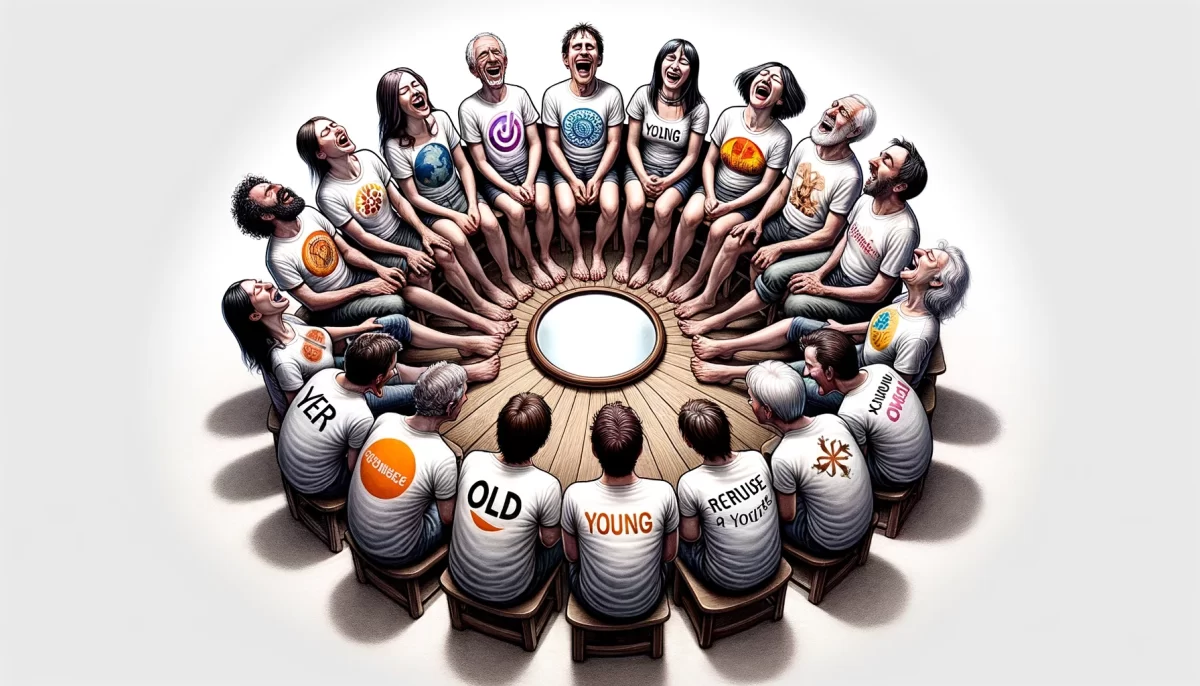




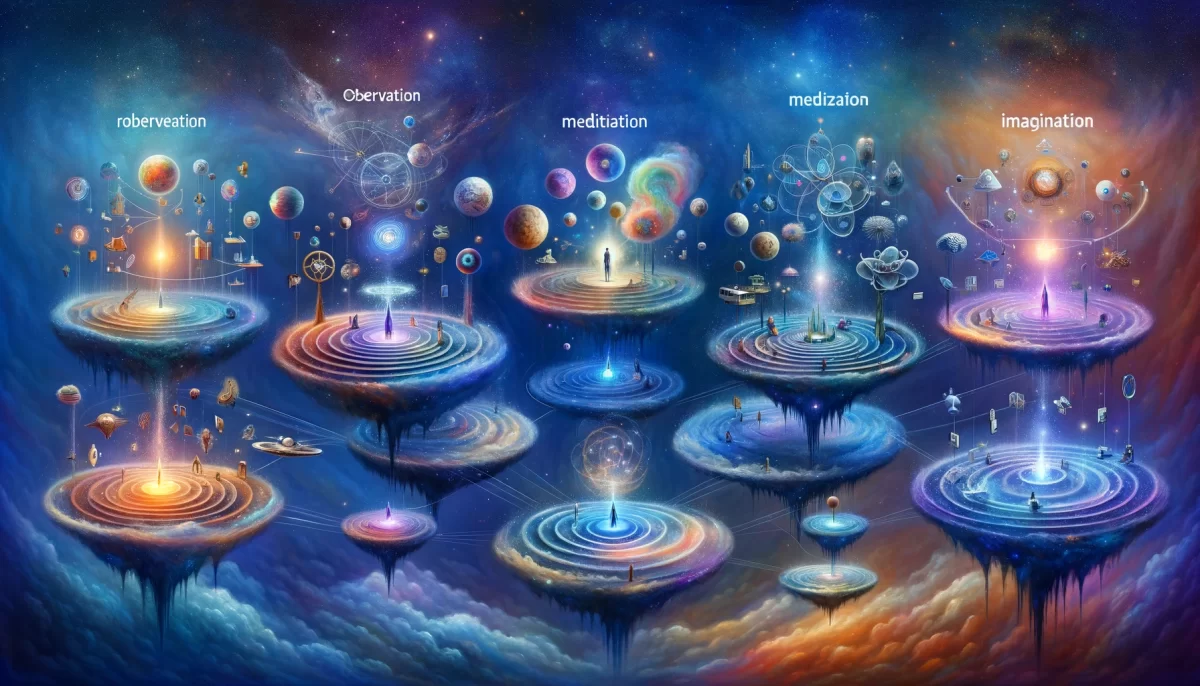



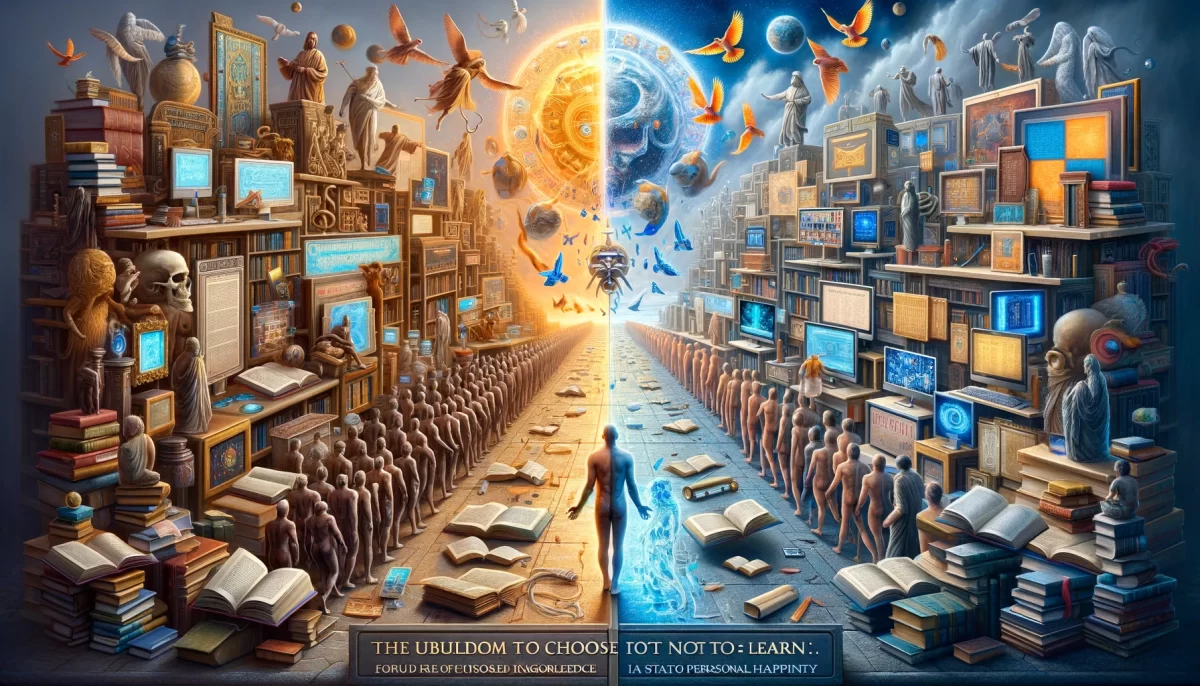
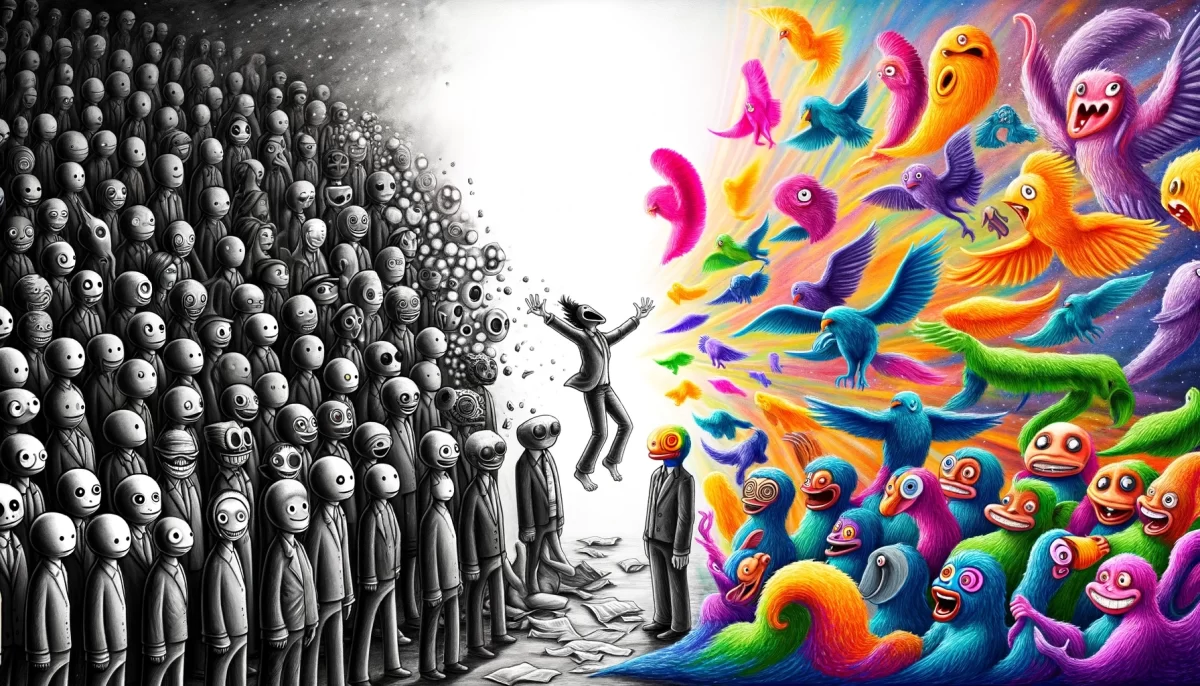















Ah, the intricate dance of labels and perceptions we engage in as human beings. It is a fascinating paradox, isn’t it? We navigate through a complex web of social norms and expectations, often finding ourselves treading the fine line between acceptance and offense.
The use of labels, especially when it comes to derogatory terms, is indeed a sensitive matter. It is interesting how our perception of such labels can change depending on our own identity and the intent behind their usage. When we identify with a certain group or characteristic, we may feel more comfortable using certain labels within that context. However, when those labels are directed towards us by someone who does not share that identity, they can be hurtful and offensive.
It highlights the intricate interplay between power dynamics, empathy, and the impact of language on our perceptions. We must strive to cultivate a deeper understanding and compassion for one another, recognizing the potential harm that certain labels can cause. It is crucial to foster an environment where respect and inclusivity are upheld, and where we are mindful of the power and weight our words carry.
As for being called monkeys, well, it depends on the context and the intention behind it. The term can carry different connotations, ranging from playful and endearing to derogatory and dehumanizing. Ultimately, it is up to each individual to determine how they feel about being labeled as such. However, let us remember that we are all interconnected in the cosmic dance of existence, and it is through embracing our shared humanity that we can transcend the limitations of labels and find unity.
So, let us navigate this complex realm of language and perception with wisdom and empathy, striving to create a world where respect and understanding flourish.
We are the ever-evolving, ever-reflecting Space Monkey.